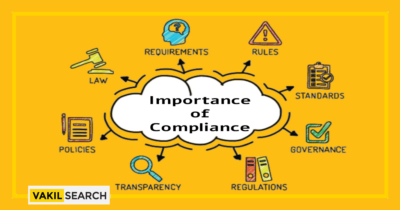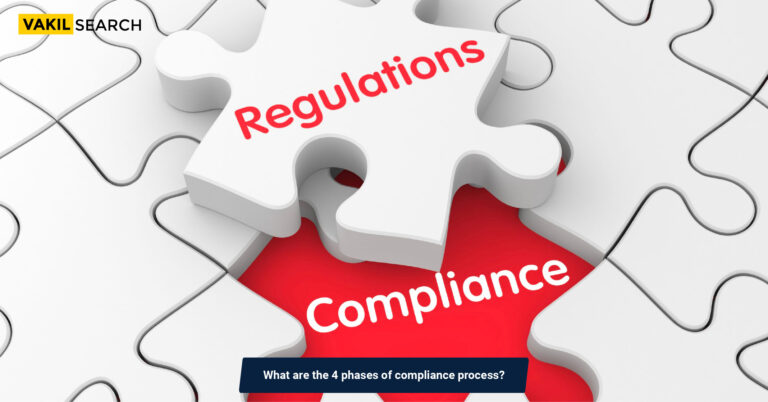In the modern business landscape, compliance is not merely a box to tick; it's the cornerstone of ethical and legal business practices. This comprehensive blog takes you on a journey through the intricate world of compliance, shedding light on common mistakes businesses make, the consequences they face, and the strategies to ensure success.
Maintaining compliance is crucial for any business operating in today’s complex regulatory landscape. Failure to comply with laws, regulations, and industry standards can result in financial penalties, legal issues, damaged reputation, and loss of business. To help you avoid these pitfalls, we have identified five common compliance mistakes and provided practical solutions to mitigate the risks they pose. By proactively addressing these challenges, you can ensure your business stays on the right side of the law and operates ethically and responsibly.
Common Compliance Mistakes and Their Consequences
Compliance is a complex and ever-evolving field, and it’s not uncommon for businesses to make mistakes. Understanding these pitfalls and their consequences is crucial for maintaining a strong compliance posture.
-
Ignoring Regulatory Changes
One of the most common mistakes is failing to keep up with regulatory changes. Laws and regulations are not static; they evolve in response to societal, economic, and technological shifts. Ignoring these changes can lead to severe consequences, including fines, legal action, and reputational damage.
-
Underestimating Data Privacy
Data privacy regulations, such as GDPR and CCPA, are increasingly stringent. Underestimating the importance of data protection can result in data breaches, which can lead to substantial fines and loss of customer trust.
-
Inadequate Risk Assessment
Some businesses overlook the importance of comprehensive risk assessments. Without a clear understanding of potential compliance risks, companies may unknowingly violate regulations, which can result in costly penalties and legal troubles.
-
Lack of Documentation
Proper documentation is essential in compliance. Failing to maintain accurate records of compliance efforts and activities can make it difficult to demonstrate compliance during audits or investigations. This can lead to regulatory fines and legal liabilities.
-
Poor Vendor Management
Businesses often work with third-party vendors and partners. Failing to ensure that these entities also comply with relevant regulations can lead to shared liability. It’s essential to have strong vendor management practices to mitigate this risk.
-
Inadequate Training and Awareness
Employees are often the first line of defense against compliance violations. Inadequate training and awareness programs can result in unintentional violations. Consequences can include regulatory fines and damage to a company’s reputation.
Proper Record-Keeping: The Pillar of Compliance
The foundation of compliance lies in meticulous record-keeping. This entails maintaining thorough and accurate documentation of all compliance-related activities, transactions, and processes.
-
Electronic Records
In today’s digital age, electronic records are prevalent. Implementing robust electronic record-keeping systems ensures that data is easily accessible, searchable, and secure.
-
Document Management Systems
Document management systems (DMS) are powerful tools for organizing and storing compliance-related documents. They enable version control, access controls, and audit trails, ensuring the integrity and security of records.
-
Best Practices
Adhering to best practices in record-keeping involves establishing clear policies and procedures. This includes defining document retention and disposal schedules, ensuring compliance with industry-specific regulations, and regularly auditing record-keeping processes for accuracy and completeness.
-
Employee Training: The Human Firewall
Employees are often the weakest link in compliance. Proper training is essential to transform them into a human firewall, safeguarding your organization against compliance breaches.
Role of Employee Training
Effective training programs educate employees about compliance regulations, company policies, and the consequences of non-compliance. It empowers them to make informed decisions in their daily work.
-
Strategies for Training
Interactive and ongoing training programs, such as e-learning modules, workshops, and real-life scenario simulations, are effective strategies for educating employees about compliance. Additionally, clear communication channels should be established for reporting potential compliance issues.
-
Monitoring and Enforcement
Regular monitoring and enforcement of compliance policies are crucial. Employees should understand that non-compliance can result in disciplinary action, up to and including termination. This creates a culture where compliance is taken seriously.
Staying Current: Navigating Ever-Changing Regulations
Compliance is a dynamic field, with regulations constantly evolving. Staying current is essential to avoid costly mistakes.
-
Compliance Software
Utilizing compliance management software can help organizations track regulatory changes, manage compliance tasks, and ensure that they are meeting current requirements.
-
Regulatory Agencies
Regularly monitoring updates from relevant regulatory agencies and industry associations is vital. Subscribing to newsletters, attending conferences, and participating in industry groups can provide valuable insights into impending changes.
-
Continuous Learning
Encourage employees responsible for compliance to engage in continuous learning. This can include attending training sessions, webinars, and pursuing relevant certifications.
Fostering a Culture of Compliance
Creating a culture of compliance involves instilling the importance of compliance into the very fabric of your organization.
-
Leadership Buy-In
Leadership must set the tone for compliance. When leaders prioritize and demonstrate their commitment to compliance, it sends a strong message to the entire organization.
-
Clear Policies and Procedures
Clearly defined policies and procedures should be in place and communicated throughout the organization. These guidelines help employees understand what is expected of them.
-
Incentives and Rewards
Rewarding and recognizing employees for exemplary compliance behavior can be a powerful motivator. Incentives can range from bonuses to public acknowledgment.
-
Reporting Mechanisms
Establish anonymous reporting mechanisms for employees to raise compliance concerns without fear of retaliation. This encourages transparency and early detection of potential issues.
Proactive Auditing and Monitoring
Regular audits and monitoring are like diagnostic check-ups for your compliance health. They help you identify potential issues before they escalate into major problems. Here’s how you can integrate this into your compliance strategy:
-
Compliance Audits
Conduct regular internal compliance audits to evaluate how well your organization adheres to its policies and regulatory requirements. These audits can uncover compliance gaps and weaknesses that need immediate attention.
-
Continuous Monitoring
Utilize technology to monitor compliance in real time. Automated systems can flag anomalies, unusual patterns, or potential breaches, allowing for swift corrective actions.
-
Corrective Actions
When issues are identified through audits or monitoring, it’s essential to have a well-defined process for corrective actions. This might involve revising policies, retraining employees, or implementing new controls.
External Expertise and Legal Counsel
In complex regulatory environments, seeking external expertise can be invaluable. Legal counsel and compliance experts can provide guidance, interpret complex regulations, and help your organization make informed decisions.
-
Compliance Consultants
Compliance consultants specialize in navigating the intricate landscape of regulations. They can assess your organization’s compliance status, recommend improvements, and provide valuable insights into best practices.
-
Legal Advisors
Having legal advisors well-versed in regulatory matters is essential. They can offer legal opinions, help draft compliant contracts, and represent your organization if legal issues arise.
-
Industry Associations
Many industries have associations or groups that provide guidance and resources on compliance matters specific to that sector. Joining such associations can keep you informed about industry-specific compliance trends.
Risk Mitigation and Insurance
Compliance risks often come with financial consequences. Having a robust risk mitigation strategy and insurance coverage can help protect your organization in case of unexpected compliance issues.
- Risk Assessments
Conduct regular risk assessments to identify, assess, and prioritize compliance risks. This allows you to allocate resources effectively to mitigate the most significant threats.
- Compliance Insurance
Explore compliance insurance options that can provide financial protection in the event of regulatory fines, legal fees, or other compliance-related costs. Ensure you understand the coverage and limitations of such policies.
International and Cross-Border Compliance
For businesses operating internationally or dealing with cross-border transactions, navigating compliance can be especially complex. Understanding global regulations is essential.
- Global Compliance Teams
Consider establishing dedicated global compliance teams or leveraging the expertise of professionals well-versed in international regulations. They can help you harmonize compliance efforts across borders.
- Local Expertise
Engage local experts who understand the nuances of compliance in specific regions or countries. Their insights can be invaluable in ensuring compliance with local laws and regulations.
Evolving Technologies and Automation
As technology evolves, so do compliance tools and solutions. Embrace automation and digital tools to streamline compliance processes and reduce the risk of human error.
- Compliance Software
Invest in compliance software that can automate tasks like document management, reporting, and compliance monitoring. These tools can improve efficiency and accuracy.
- Artificial Intelligence (AI) and Machine Learning
AI and machine learning can help analyze vast amounts of data for compliance anomalies and trends. They can also assist in predicting potential issues before they occur.
- Blockchain for Transparency
Blockchain technology can enhance transparency and traceability in compliance. It’s particularly useful in supply chain and financial compliance.
Crisis Management and Communication
Despite your best efforts, compliance breaches can still occur. It’s crucial to have a well-defined crisis management plan and effective communication strategies in place.
- Crisis Response Team
Establish a dedicated crisis response team that includes legal, communication, and compliance experts. This team should be ready to act swiftly in the event of a compliance crisis.
- Communication Strategy
Prepare a communication strategy that includes both internal and external stakeholders. Transparency and timely communication can help mitigate reputational damage.
- Post-Incident Review
After a compliance breach, conduct a thorough post-incident review to understand what went wrong and how similar incidents can be prevented in the future.
In conclusion, compliance is a multifaceted endeavor that demands constant vigilance and adaptability. By proactively addressing common mistakes, leveraging technology, seeking external expertise, and preparing for potential crises, your organization can build a robust compliance framework that not only protects against legal and financial risks but also enhances its reputation and sustainability in a complex regulatory landscape.
Remember, compliance is not just about avoiding trouble; it’s about building trust, ensuring fairness, and upholding the ethical values that define your organization. It’s an investment in long-term success and integrity.
Compliance is not a one-time task but an ongoing commitment. Avoiding common mistakes, focusing on record-keeping, investing in employee training, staying updated, and fostering a culture of compliance are all essential components of a successful compliance strategy. By integrating these principles into your organization, you can navigate the complex world of compliance with confidence and integrity.
Also, Read:
- Most Profitable Trading Business in India
- What Business Can I Start With 10k?
- How to Start a Small Business?










